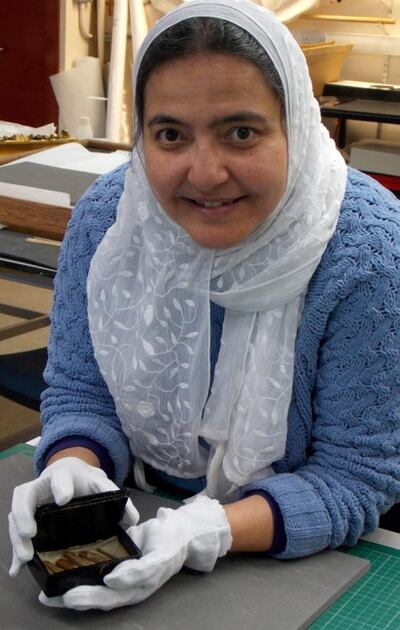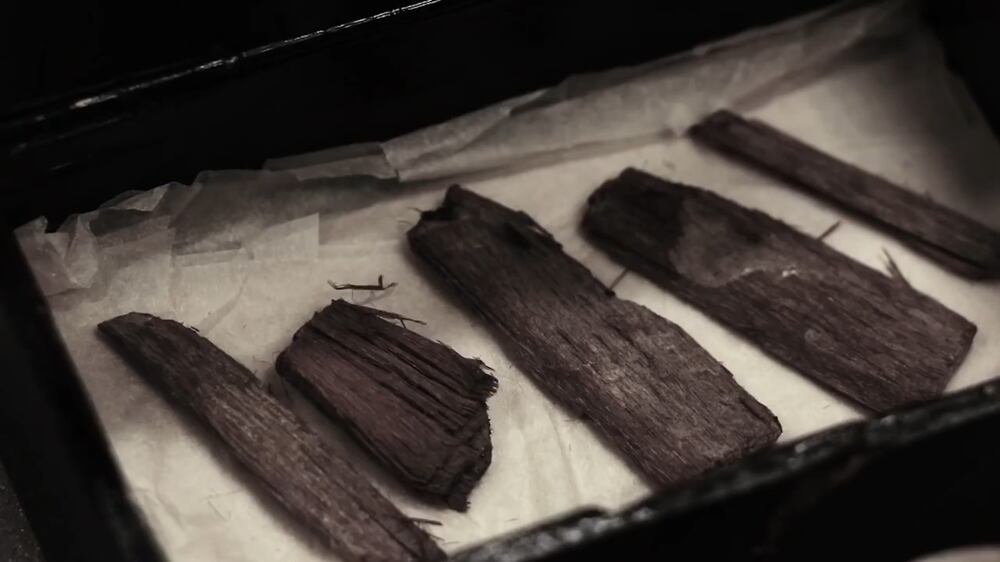A lost artefact from the Great Pyramid of Giza dating back about 5,000 years was found in a cigar tin at a Scottish university.
The 13cm piece of cedar is one of only three artefacts recovered from the pyramid after engineer Waynman Dixon discovered them in the Queen's Chamber in 1872.
Two of the artefacts – a ball and a hook – are on display at the British Museum, but the cedar wood was missing for more than a century.
A 2001 record indicated the relic was donated to the University of Aberdeen but it was never classified.
However, curatorial assistant Abeer Eladany, who is from Egypt, was reviewing items in the university's Asia collection and found something out of place.
Inside a cigar tin with an Egyptian flag on the lid was the cedar wood.
Ms Eladany said she knew instantly the cedar wood was the long-lost artefact from Giza.
She said: “Once I looked into the numbers in our Egypt records, I instantly knew what it was, and that it had effectively been hidden in plain sight in the wrong collection.
"I’m an archaeologist and have worked on digs in Egypt but I never imagined it would be here in north-east Scotland that I’d find something so important to the heritage of my own country.
“It may be just a small fragment of wood, which is now in several pieces, but it is hugely significant given that it is one of only three items ever to be recovered from inside the Great Pyramid.”
The cedar wood dates from somewhere in the period 3341 to 3094BC – about 500 years earlier than historical records, which date the Great Pyramid to the reign of the Pharaoh Khufu, from 2580 to 2560BC.
The analysis supports the idea that, whatever their use, the Dixon Relics were original to the construction of the Great Pyramid and not later artefacts left behind by those exploring the chambers.
The cedar wood has since broken up into several pieces but it is still historically significant.

Neil Curtis, head of museums and special collections at the university, said: “Finding the missing Dixon Relic was a surprise but the carbon dating has also been quite a revelation.
“It is even older than we had imagined. This may be because the date relates to the age of the wood, maybe from the centre of a long-lived tree. Alternatively, it could be because of the rarity of trees in ancient Egypt, which meant that wood was scarce, treasured and recycled or cared for over many years.”







